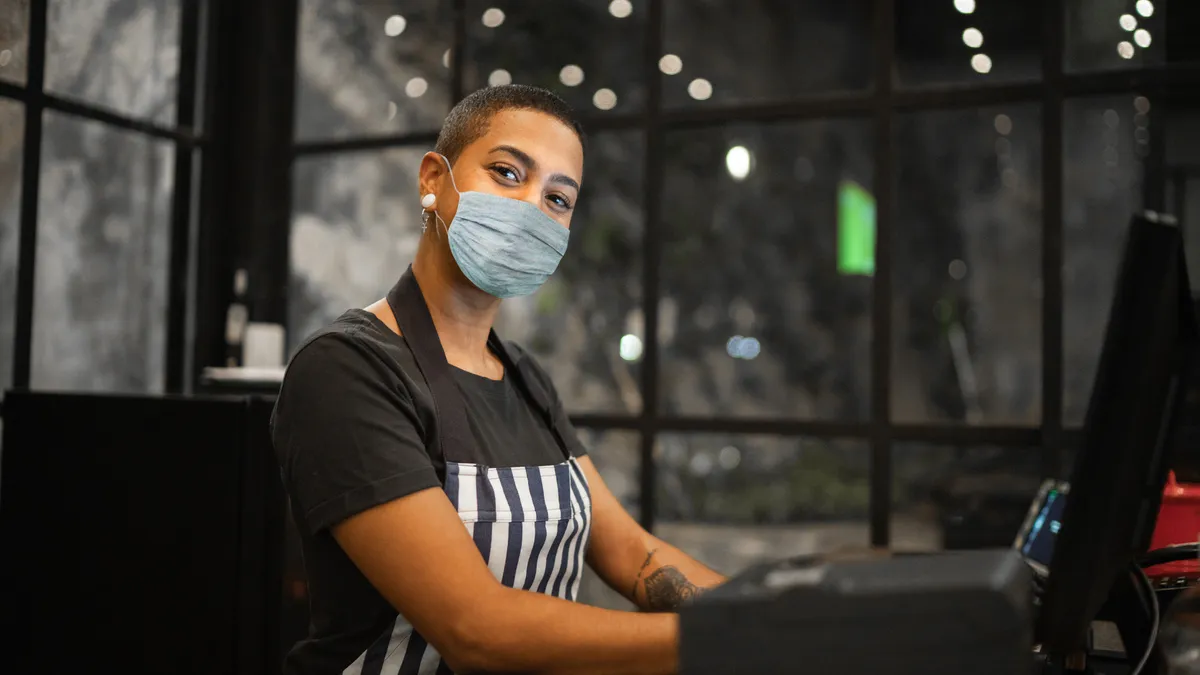Dive Brief:
- Forty-one percent of restaurant workers report a noticeable change in the frequency of unwanted sexualized comments from customers, and 25% report they have experienced or witnessed a "significant" change in the frequency of such sexual harassment, according to a new study from One Fair Wage.
- Seventy-eight percent of workers report experiencing or witnessing hostile behavior from customers in response to enforcing COVID-19 protocols. This has led to 58% of employees feeling reluctant to enforce such protocols out of concern that customers would tip them less.
- The restaurant industry has been grappling with a sexual harassment problem long before the COVID-19 pandemic hit. A 2018 study from Harvard Business Review found that more sexual harassment claims in the U.S. are filed in the restaurant industry than any other industry, with as many as 90% of women and 70% of men reporting some form of sexual harassment.
Dive Insight:
The CDC reports that workplace threats and assaults tend to occur more often in retail and restaurants versus other industries. The pandemic seems to have compounded this issue, along with a drop in tips. The One Fair Wage report finds that over 80% of restaurant workers have reported a decline in tips during COVID-19, with 66% reporting that their tips have declined by at least 50%. These stats paint a grim picture of the challenges restaurant employees face as they work under pandemic conditions.
Many restaurant employees are required to enforce COVID-19 safety protocols, which can often be tied to tips. Sixty-five percent of employees said in the One Fair Wage report that they have received a decreased tip from a customer in response to enforcing COVID-19 safety protocols on a weekly basis. As servers navigate re-closings and reduced restaurant capacities, those tips are likely already compromised, and this poses an even bigger challenge for workers in 43 states that have a subminimum wage for tipped workers.
Some chains, including McDonald's, have added training on how to enforce safety protocols in light of the pandemic, while other restaurants have adopted COVID-specific harassment training to help workers diffuse volatile situations. Some states also have training in place for restaurant employees on how to enforce capacity, masking and social distancing requirements. The CDC offers resources on how employers can prevent harassment, like offering off-premise options, posting messaging about COVID-19 policies and providing employee training on threat recognition and conflict resolution. The CDC also recommends two employees working as a team to mitigate harassment, if possible.
Based on the One Fair Wage report, however, these recommendations and policies don't seem to have much of an effect. Seventy percent of employees said they have their supervisors' support if they ask a guest to wear a mask, but that has had little bearing on customer behavior. Nearly 60% of restaurant workers report experiencing hostility in response to enforcing COVID-19 safety protocols at least weekly.









